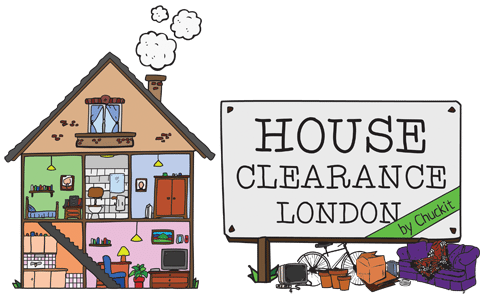Eco-Friendly Disposal: A Guide to Responsible Waste Management

Reliable and Affordable Professional Junk Removal Services
14th May 2024
Affordable Waste Removal: Budget-Friendly Disposal Solutions
15th May 2024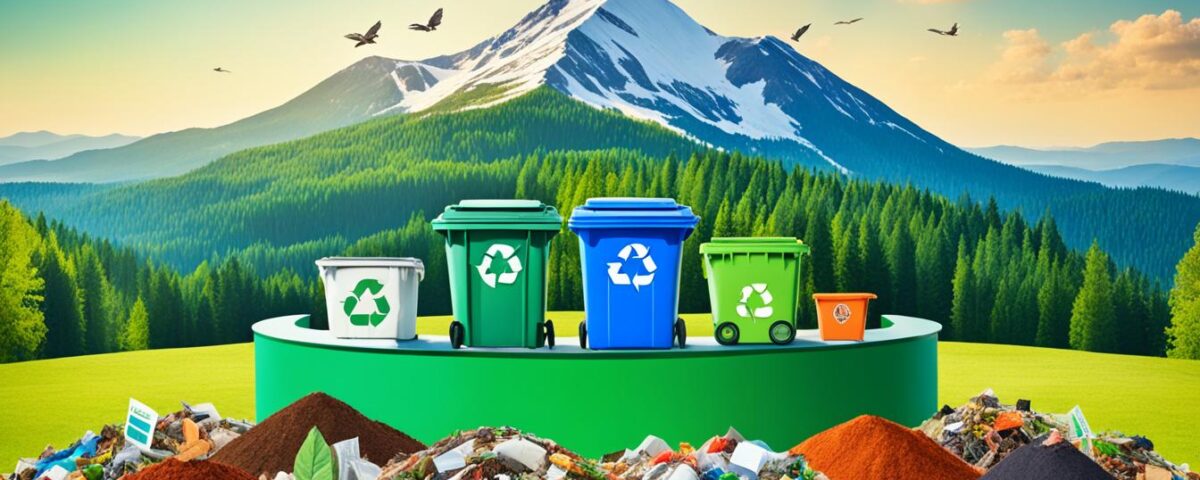
Welcome to our guide on environmentally friendly disposal. We focus on responsible waste management to help our planet. We believe that using eco-friendly approaches to deal with waste isn’t just a choice. It’s key for a cleaner world.
This guide will show why it’s crucial to cut down on waste’s harm. Being eco-friendly is very important. It means planning well and using new technologies to handle waste, like in building sites. This makes it possible to produce less waste and choose better ways to throw it away.
Using actions such as sorting waste on-site and checking how we get rid of it helps. It improves our chance to help the Earth for a long time.
To learn more about sustainable waste management, stick with us. We’ll talk about why it’s good to make less waste from the start and follow rules like the Waste Duty of Care in the UK. Let’s work together for a planet that lasts.
The Importance of Environmentally Friendly Disposal
Confronting environmental issues shows the importance of environmentally friendly disposal. We all aim to protect our planet for those who come after us. Knowing how our waste management practices impact the environment is key. This is to understand how vital it is to use better ways to manage our waste.
Understanding the Impact on Our Planet
The impact of waste on the planet includes many negative effects. Wrong waste disposal causes pollution, uses up natural resources, and speeds up climate change. Each type of rubbish, when not dealt with right, can severely harm our land and water environments.
- Pollution through toxic leachates affects our soil and waterways
- Increased greenhouse gas emissions contribute to global warming
- Resource depletion reduces the availability of raw materials for future use
Assessing the Benefits for Future Generations
The benefits of responsible waste management are more than protecting the environment. It’s about creating a future where we all thrive together. By being mindful of how we dispose of things, we want to:
- Reduce our carbon footprint and mitigate climate change impacts
- Preserve natural habitats and biodiversity
- Maintain a balance in ecological systems for ongoing and future sustainability
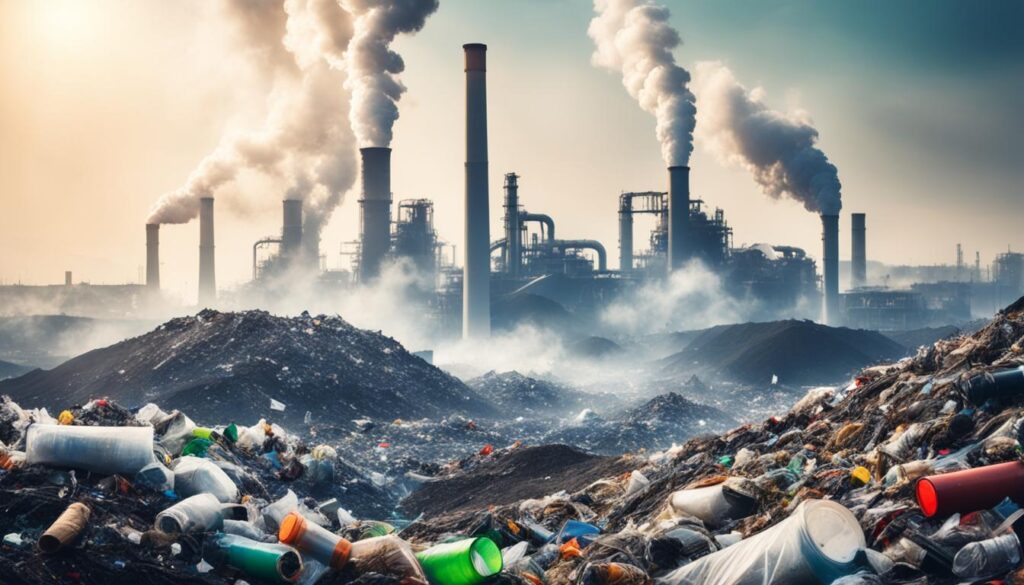
Choosing to follow environmentally friendly disposal helps build a better world. This is for our kids and their kids. Each of our waste management actions can truly make a difference. It shows how powerful our choices are for saving the planet.
Principles of Green Waste Management
The road to sustainability in waste handling and a circular economy approach begins with understanding ways to cut waste. These methods aim to reduce how much waste we produce. They also aim to bring benefits back to our economy, creating a cycle of sustainability.
Incorporating Sustainability in Waste Handling
Green waste management plays a key role in keeping our environment in balance. It focuses on the idea of using less, reusing what we can, and recycling the rest. A good example is Mexico City, which started a big recycling program when its main landfill shut in 2011. This shows that organised waste plans can make a big difference.
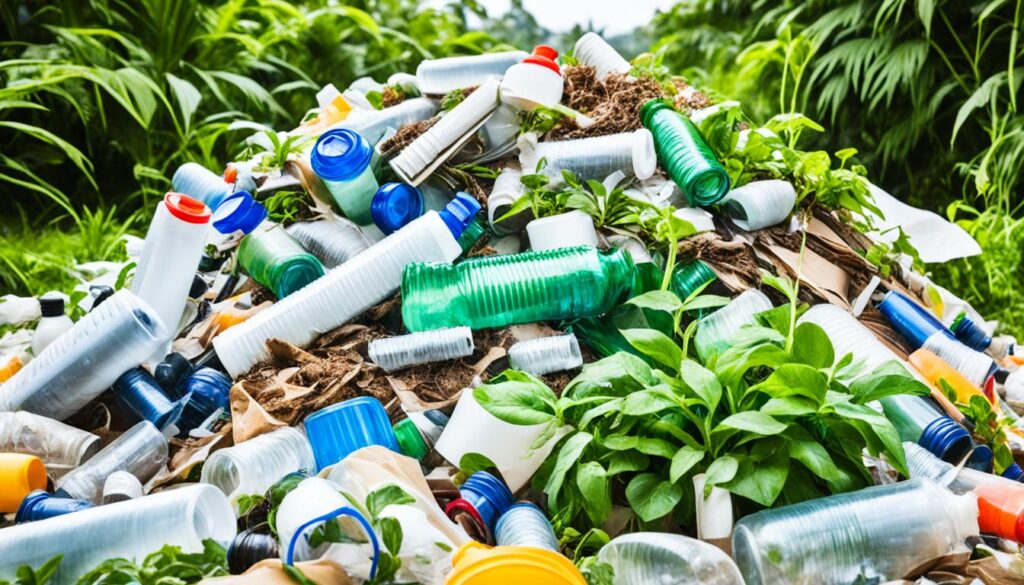
Adopting a Circular Economy Approach
The circular economy model is all about keeping resources cycling within production. It’s a smart way to handle the issue of waste. This way, products are meant to last longer and not end up as trash. A cool part is, we’re learning to make energy from items usually seen as trash. This can save power and mean we use less new materials, making our future brighter and cleaner.
We’re always learning more about how to manage waste better and keep up with new methods. These efforts help us build a stronger environment. Choosing a circular economy and improving how we deal with waste is good for the Earth and our wallets in the long run.
Eco-Friendly Recycling Techniques
Welcome to our guide on eco-friendly recycling. We aim to help the environment by using new recycling approaches. It’s vital to know and use these methods.
Sorting Methodologies to Improve Recycling Rates
Key to better recycling rates are good sorting methods. When we carefully sort items before recycling, we do two things. First, we recycle more. Second, the stuff we recycle is better quality. Let’s look into some sorting techniques:
- Single-stream recycling: This method lets all recyclable items come together. It makes recycling easy for us at home and more people take part.
- Automated sorting systems: With new tech, machines can now sort things by what they’re made of. This means less mix-ups and less work for people.
- Community educational programs: Teaching people the right way to sort can really help. It makes recycling more effective.
Recycling Innovations and Community Involvement
To get better at recycling, we need to come up with new ideas. And the community plays a big part in making these ideas work. Here’s what we’re doing:
- Finding biodegradable alternatives to regular plastics cuts down waste over time.
- Putting up reverse vending machines that reward people for recycling. This makes more folks want to join in.
By trying out new things and working together, we make sure our green ideas actually happen. “+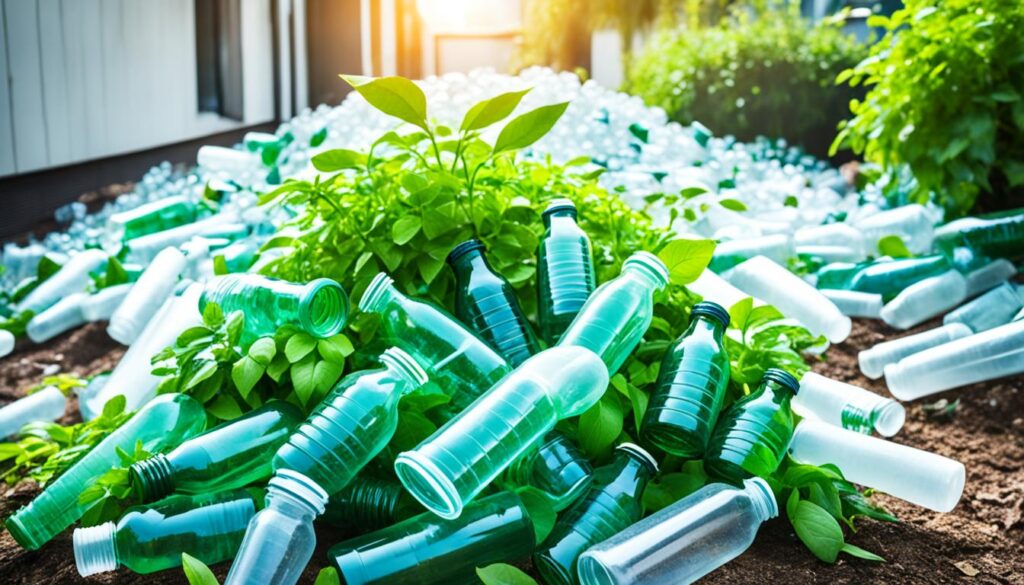
Implementing Sustainable Disposal Methods
When we look at ways to dispose of things sustainably, it’s vital that we choose ways that do little harm to our planet. Two big ways we can do this are by turning our leftover food and green waste into compost. And by picking the things we buy carefully.
Composting Biodegradable Waste Effectively
Composting is a crucial part of getting rid of waste in a way that’s good for the earth. It turns food scraps and old leaves into amazing soil. This helps plants grow and means less bad gases in the air.
- Collect suitable organic waste, such as vegetable peels, coffee grounds, and grass clippings.
- Maintain your compost by regularly turning and keeping it moist to accelerate decomposition.
- Use the finished compost to enhance garden soil, which reduces the need for chemical fertilizers.
By composting, we send less waste to landfills. We also don’t need as many chemicals in our gardens. This shows a smart way to help the earth.
Choosing Products with Minimal Environmental Impact
Picking eco-friendly products is another big step in protecting our planet. This means buying things that break down easily or supporting companies that work hard to be green.
- Opt for products packaged in recycled or minimal packaging.
- Seek out items made from renewable resources.
- Support businesses that are transparent about their supply chains and impact on the environment.
By being careful about what we buy, we’re helping the earth. It’s all about using our buying power to push companies to be better.
Through composting and wise shopping, we’re taking a smart and whole approach to dealing with our stuff. This helps the earth stay healthy. It also gets more and more people living in a way that’s good for our planet. Together, let’s work for a future that’s kind to the earth.
Zero-Waste Initiatives for Households and Businesses
In our push for a healthier planet, zero-waste initiatives are key. They help cut our waste and protect the Earth. By learning how to reduce both household waste and business waste, we do our part for the environment. This ensures the Earth is safe for those who come after us.
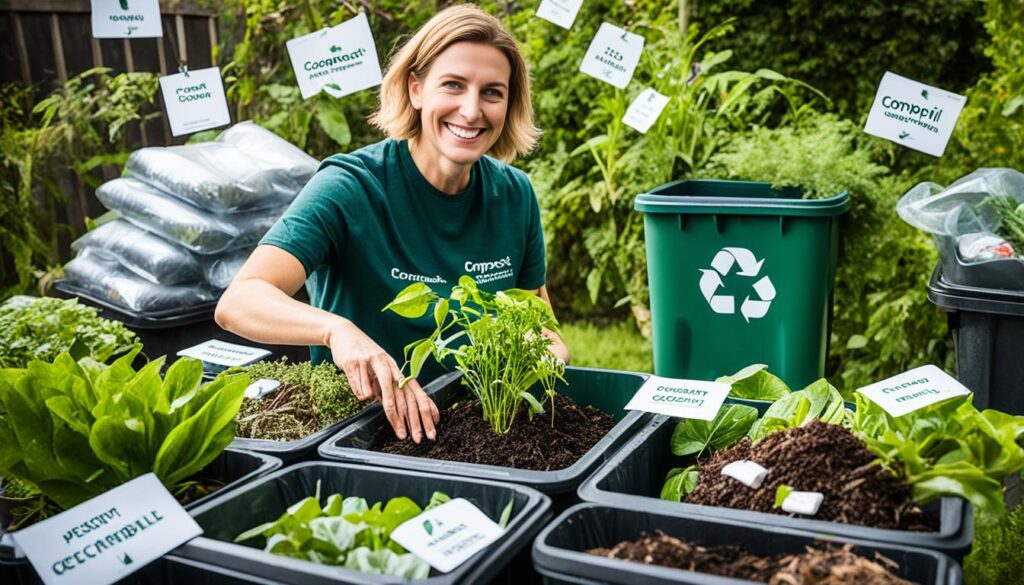
Both homes and companies can do a lot with zero-waste actions. Let’s see what they can do:
- Households can begin by composting kitchen scraps. This simple step can reduce the amount of trash they produce.
- Living with less is a powerful choice. It means buying fewer things, which lowers waste.
- Make recycling a habit. Always sort out items that can be recycled and take them to the right places.
For businesses, going zero waste means looking within and beyond their operation:
- Conducting a waste audit helps companies know their waste. This is a starting point for coming up with ways to reduce it.
- Getting employees involved is crucial. Offer them rewards and teach them about eco-friendly actions.
- Teaming up with other organisations can make waste management better for everyone.
Embracing zero-waste initiatives does a lot more than just cutting waste. It helps us rely less on landfills and builds a culture of caring for our planet. This impacts our day-to-day life, be it at home or work.
Conclusion
The key to a green future lies in how we dispose of our waste. Understanding the harm waste can cause and how to limit it is crucial. We must use methods like recycling and composting to make a difference.
To truly be eco-friendly, we each need to do our part. This means changing our habits and choosing products that do less harm. Every bit helps, from picking the right products to joining recycling efforts.
Together, we can shape a future that cares for the planet. Everyone’s choices matter, whether you’re a single person, a company, or a whole community. Let’s focus on doing better, each of us contributing to a healthier world.
FAQ
What is environmentally friendly disposal?
Environmentally friendly disposal means managing waste responsibly. It uses methods that don’t harm the earth. Think of recycling and composting. This approach helps reduce waste and use our resources better.
Why is responsible waste management important?
Proper waste management lessens waste’s bad effects on our planet. It reduces pollution and saves our resources. It fights climate change. Doing this helps keep our world safe for everyone now and in the future.
How does waste affect the planet?
Waste hurts the planet, causing pollution and harming life. It also uses up our resources and speeds up climate change. But, managing waste the right way can stop these problems and keep Earth safe.
What are the benefits of responsible waste management?
Handling waste well has lots of good points. It cuts down on harmful emissions and saves our resources. It can also mean more jobs. This way, we help build a better future for all.
How can I incorporate sustainability in waste handling?
To be green in handling waste, remember the 3Rs: reduce, reuse, and recycle. Use less, find new uses for old stuff, and recycle what you can. Plus, back eco-friendly goods and join recycling in your area.
What is a circular economy approach to waste management?
A circular economy aims to lessen waste and use things wisely. It focuses on reusing and recycling to cut waste. This way, we use less of the Earth’s limited resources.
How can we improve recycling rates?
To recycle more, sort waste better and teach people how. Better systems and more buyback schemes can help too. This all makes recycling easier and more popular.
What are some recycling innovations?
There are new ways to recycle, like machines that sort materials fast. Chemical recycling turns plastics back into useful parts. Helping out with local recycling also really matters.
How can I compost biodegradable waste effectively?
To compost well, set up a system or join a local one. Add food scraps, leaves, and other green waste. Mix it and keep it damp. Soon, it’ll turn into compost that’s great for plants.
What should I consider when choosing products with minimal environmental impact?
Think about a product’s whole life cycle. Look for things made with care for the planet. Choose items with less packaging or eco-friendly packaging. By making smart picks, you help lessen waste.
How can I reduce waste at home?
To make less waste, start with the 3Rs. Say no to things you’ll only use once. Use what you have again. Also, turn food scraps and paper into something good for the garden. By doing this, you help keep trash out of the bin.
How can businesses implement sustainable waste management practices?
Companies can cut waste by looking at what they throw away. They can use less packaging and not print as much. Getting staff and clients to buy wisely helps too. Working with green waste teams and recycling as a group is a plus.
How can zero-waste initiatives benefit households and businesses?
Embracing zero waste saves money and the planet at home and at work. It makes us use things more thoughtfully. It shows we care, reduces charges for waste, and helps the world. Being zero waste is a win for all.

